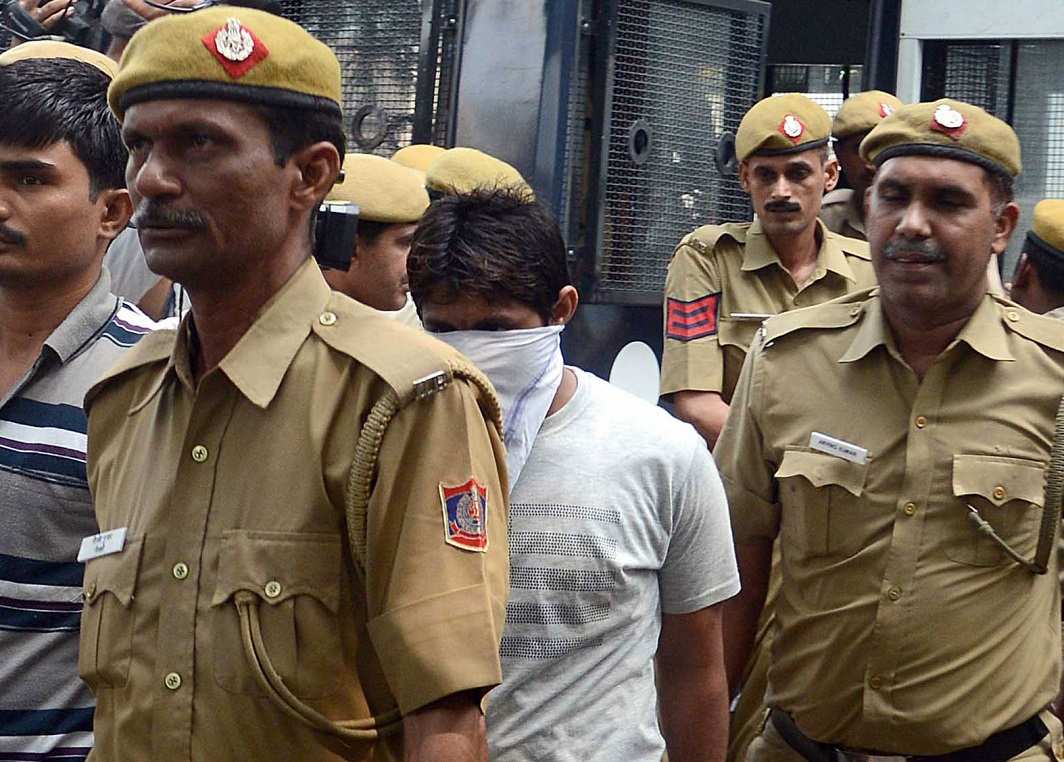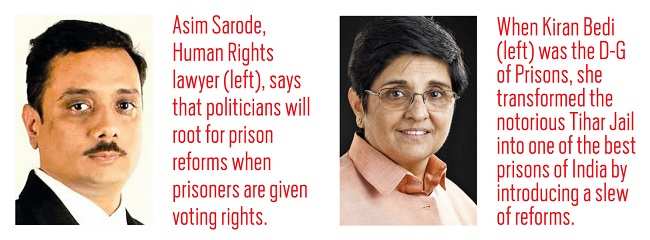A directive by the Bombay High Court to Maharashtra to construct more jails by June-end this year could alleviate overcrowding of prisons there
~By Ramesh Menon in Pune
Prisoners housed in jails in Mumbai and Pune can heave a sigh in relief as their living conditions might improve soon. Early this month, the Bombay High Court directed the state government to construct additional jails by June-end this year to deal with overcrowding of prisons in the state. The Court said that the construction should take into account the need that will arise in the next 25-30 years. The state government has been asked to file a compliance report on the same by May 4.
In a 58-page landmark judgment, the division bench of Justices AS Oka and AA Sayyed said additional jails must be built within the iconic Yerawada Jail in Pune and Byculla and Arthur Road Jails in Mumbai. The direction came after two separate writ petitions were filed on the need to improve conditions in jails. One was by Jan Adalat, Centre of Para Legal Services and Legal Aid, a Pune-based NGO that deals with legal aid and para legal services, and the other by 24-year-old Ganesh Shankar Pawar, an undertrial in Yerawada Jail.
After studying reports of the three jails in 2015-16 filed by judicial officers, the bench said that Yerawada Jail and Arthur Road Jail were overcrowded, having nearly three times their holding capacity. The Court underlined the importance of scientific analysis of the current capacity of jails and what the needs of the future would be after taking into account the crime rates of the last decade in Maharashtra along with the present number of prisoners and criminal cases pending. It wanted the conditions in hospitals within the prisons improved, a decision taken on the age of children who should stay with their mothers, the establishment of crèches, nursery, kindergarten and primary schools near the jails. The Court said the children’s fees should be paid by the government as the mothers would not be able to afford their education.
Some of the directives of the Court were:
- Construction of new bathroom and toilet blocks for men and women prisoners
- Repair and renovation of existing blocks in jails across the state
- Provision of modern facilities such as audio system to help better communication between relatives or friends of prisoners in the jail premises
- Relaxation of conditions for lawyers visiting their clients in jails
- Setting up a permanent committee of social workers and dietitians who would make surprise visits to jails to test the quality and quantity of food served to prisoners as well as the cleanliness and hygiene in kitchens.
Justice Narendra Chapalgaonker who retired from the Bombay High Court told India Legal that he felt miserable after he visited Goa’s Fort Aguada Jail when he was a judge as he saw how some 30 prisoners were uncomfortably packed in a small hall. When he met the Lt Governor, Gen JFR Jacob, he requested that something be done as it was inhuman. “Prisoners are also entitled to live with dignity. They need minimum space to sleep and move around. They need sufficient toilets and bathrooms. We must realise that overcrowding of jails is both dangerous and injurious to prisoners. The courts are suggesting that prisoners cannot be denied basic amenities as they are part of the Right to Life under Art 21 of the constitution,” he said.

To ensure that things are done the way they should be, the Court wanted an eminent architect and public health expert to be included in a government committee that would make recommendations on modernisation of jails. The panel would be headed by a retired high court judge and will comprise the inspector-general of prisons, a retired deputy inspector-general of prisons and a social scientist from the Tata Institute of Social Sciences.
Human rights lawyer Asim Sarode said: “Building new prisons was a long-standing demand in Maharashtra as the overcrowding issue was serious and was compounded by the lack of basic facilities like sanitation, water and availability of medicines. The government had shown complete disregard for prison welfare and the court judgment is a ray of hope. Politicians will root for prison reforms only when prisoners are given voting rights and that is what we should now fight for.”
 Reacting to a PIL in August last year, the Bombay High Court had asked the state to present a status report on the construction of new jails. It said that it was the state’s responsibility to build more jails as they were presently holding nearly two to three times the capacity they were intended to. “The state should inform us if they are constructing jails and study the crime ratio to understand how many persons are convicted. This exercise should be taken up in a similar manner when the state does planning for a city,” observed Justice Naresh Patil.
Reacting to a PIL in August last year, the Bombay High Court had asked the state to present a status report on the construction of new jails. It said that it was the state’s responsibility to build more jails as they were presently holding nearly two to three times the capacity they were intended to. “The state should inform us if they are constructing jails and study the crime ratio to understand how many persons are convicted. This exercise should be taken up in a similar manner when the state does planning for a city,” observed Justice Naresh Patil.
Meeran Borwankar, director-general, Bureau of Police Research and Development, a consultancy under the centre for modernisation of police forces, told India Legal: “There is a definite need to construct more prisons but construction of barracks with toilets and washrooms can be immediately taken up as it can be done faster and at a less cost. For constructing new prisons, identification of land and getting approvals takes time. Our emphasis now should be on reformation and rehabilitation. The prison must be near courts and police headquarters. Taking undertrials to courts in Mumbai is extremely time-consuming and risky. One way out is to extensively use video-conferencing between jails and court. Only when the actual trial begins, should an inmate be taken to court. Video-conferencing will reduce the workload of the police and the prison administration and crowding of courts. It shall also strengthen security as many a time illegal movement of inmates is noted during court transit and they smuggle unauthorised stuff while coming back to prisons.”
When Kiran Bedi was the D-G of Prisons, she transformed the notorious Tihar Jail into one of the best prisons of India by introducing a slew of reforms. These included allowing prisoners to take up various educational courses, vocational training and meditation and other recreational activities. She told India Legal that those at the top have to lead from the front by walking around the jail everyday to find out what needs to be done. She felt that it would make a huge difference if communication lines were opened up with the prisoners.
Her work could have been replicated in other jails but it was not done. Jails in India are in a pathetic state and have become dens of crime, gang wars, sexual abuse, corruption and illness. Numerous cases of corruption involving jail officials have only added to the problem. Unless there are prison reforms, jails here will only slide into more chaos and despair.


